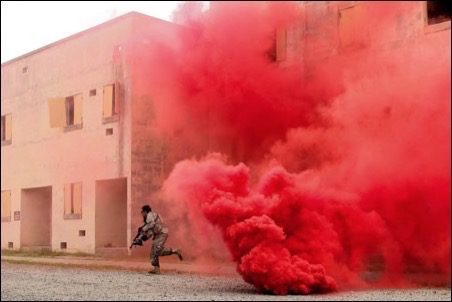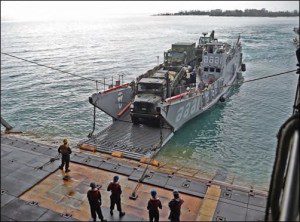Aggressive Fort A.P. Hill, Virginia Military Defense Attorneys
Military Sex Crimes, Penalties, & Legal Defenses
Our seasoned civilian defense attorneys and their victories speak for themselves from less experienced attorneys.
If you or a loved one are under investigator for a military Article 120 UCMJ offense or if you are facing an administrative discharge, Article 15, show cause board, letter of reprimand, then contact our military defense attorneys today.
Defense Sexual Assault Cases in the Military
 Military statutes include numerous sex-related crimes. Military laws try to capture every possible human activity related to sexual misbehavior and deviance. However, military sex crimes can be broken down into subcategories such as rape, aggravated sexual assault, abusive sexual contact, child sex crimes, indecent exposure, and child pornography crimes.
Military statutes include numerous sex-related crimes. Military laws try to capture every possible human activity related to sexual misbehavior and deviance. However, military sex crimes can be broken down into subcategories such as rape, aggravated sexual assault, abusive sexual contact, child sex crimes, indecent exposure, and child pornography crimes.
Our hard-hitting court-martial attorneys and their victories set us apart from less seasoned lawyers.
If you or a loved one are facing a court-martial for a military Article 120 violation or if you are facing an administrative separation, NJP, show cause board, letter of reprimand, then reach out to our military defense lawyers now.
The suspected service member and his or her future is our chief concern. Our military criminal defense attorneys maintain smaller caseloads than the average free military lawyer so that we can focus on each trial individually. Your case will not be outsourced to a random lawyer, and we will not intimidate you into taking a dive at the eleventh hour. Our military criminal defense lawyers have successfully defended US Army court-martial and administrative separation cases in the United States and globally.
Fort AP Hill, VA Military Installation
Fort A & P Hill in the city of Bowling Green is one of the largest and most important U.S. military facilities on the East Coast. The Southern Virginia National Guard Base is a sprawling, 76,000-acre military training complex between D.C. and Richmond. It is one of the largest military facilities on the East Coast with 76,000 acres of land, including modern 28,000 acres.
Known as “the place where America’s military sharpens its combat edge,” Hill is a year-round military all-purpose training center located 60 miles east of Washington, D.C. It has 310 square miles of land, including a modern 110 square mile complex with more than 100 direct and indirect shooting ranges, helicopter and air force sites, Fort AP. As an active service facility of the US Army, it is the place where military units conduct training ranging from small units to large-scale maneuvers. The base is used year-round for the military training of active and reserve troops, Army, Navy, Marines, Air Force and ROTC cadets, as well as other government agencies such as the State Department, the Interior Department, the United States Customs Service, and federal, state and local security and law enforcement agencies.
The mission includes year-round administrative and logistic support for training facilities and units of the active military, reserve and other branches of the military and government. Fort A & P Hill Regional Training Center provides realistic joint and combined weapons training to support American forces. The Hill Regional Collective Training Center also provides innovative, flexible, and relevant training opportunities to support the Army’s joint and interagency readiness.
Military court-martial attorneys
Hill supports mobilization and helps units train for deployment, and Fort A.P. Hill has modern training facilities and a number of professional backers to ensure the armed forces have the edge they need to win in the operating environment of the 21st century.
It was named in honor of Ambrose Power Hill, one of the lieutenants of the Confederate Army during the American Civil War. The installation was named after Lt. Gen. Ambrose Powell-Hill, a native of Virginia who served as Confederate commander during the Civil War. The U.S. Army’s 30,329-acre military training facility was founded in 1941 and named Hill in honor of Confederate Lt. Gen. Ambrose Powell.
Virginia Military Defense Lawyers
-
- Hampton Roads VA Military Defense Lawyers
- Alexandria VA Military Defense Lawyers
- Arlington VA Military Defense Lawyers
- Chesapeake VA Military Defense Lawyers
- Dahlgren VA Military Defense Lawyers
- Fairfax VA Military Defense Lawyers
- Fredericksburg VA Military Defense Lawyers
- Petersburg VA Military Defense Lawyers
- Portsmouth VA Military Defense Lawyers
- Quantico VA Military Defense Lawyers

- Williamsburg VA Military Defense Lawyers
- Yorktown VA Military Defense Lawyers
- Newport VA Military Defense Lawyers
- Norfolk VA Military Defense Lawyers
- Hampton VA Military Defense Lawyers
Lieutenant-General Ambrose Powell Hill, a Virginia-born army officer who distinguished himself as a Confederate commander in the Civil War, rose from colonel to major general in just three months and took command of one of Lees’ three corps in 1863.
Today, the fortress is a training and maneuvering center that focuses on realistic joint and combined weapons training. During the Vietnam War, Hill was an important base for units sent to Europe, including the headquarters of the VII Corps and the Third Armored Cavalry Regiment. The base is also an important center for engineers, graduate officer schools for students, and Belvoir.
Hill (APH) (30,329 hectares) is a US Army military training facility in the upper coastal plains of Caroline County, Virginia. Hill, Virginia, is an active duty US Army facility near the town of Bowling Green, Virginia, USA. Hill is a US Army training and maneuvering center located north of the city.
Fort AP Hill History
Fort Lee, Virginia is named after General Robert E. Lee (1807-1870) who led the Northern Virginia Army from April 1865 until the surrender of Union forces at the end of the civil war. Fort Lee Army Base, about 25 miles south of Richmond, is also named after him.
Hill was founded on June 11, 1941 as an Army training facility by order of the War Department. During its first year, it was used as a maneuvering area for the Second Army Corps and three active National Guard divisions in the Mid-Atlantic states. During the Vietnam War, it was also an important center for the training of engineering officer candidates for students from Belvoir.
Three of our 10 military facilities are named after Confederate officers in Virginia, more than in any other state. Military units from across the United States meet here for training, whether they are engaged in small-scale operations, large-scale exercises, or advanced weapons.
Protests in the United States
The military is beginning to look at 10 army strongholds to revise the renaming of bases and other assets reminiscent of the Confederate States of America and the people who served in the Confederacy. Starting this summer and through the fall, the Commission will rename the 10 forts and visit and consider Fort Bragg in North Carolina, Fort Rucker in Alabama, Fort Benning and Fort Gordon in Georgia, Fort Hood in Texas, Fort Polk in Louisiana and four sites in Virginia, including Fort AP.
Protests in the United States triggered by the death of George Floyd have reignited efforts to rename US military bases in honor of servicemen who fought for slavery during the civil war. Rep. Anthony Brown, D-Maryland, a retired Army reserve colonel, said he was trained and deployed in war zones where several bases were named after Confederate names. It is named after Virginia-born and Confederate Lt. Gen. A. P. Hill, one of the Army institutions named after a Confederate soldier, and the renaming is among the commissions that designate items for the Department of Defense to commemorate the Confederate States of America and the individuals who served there.
